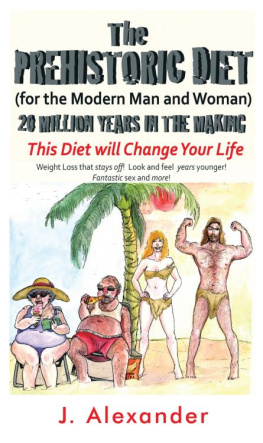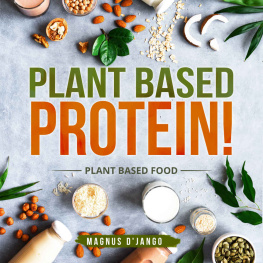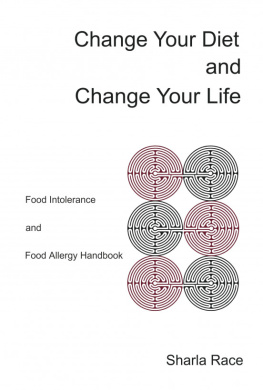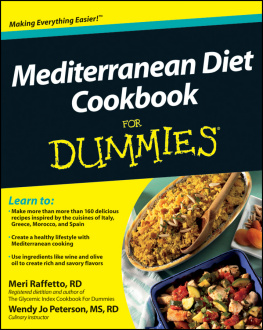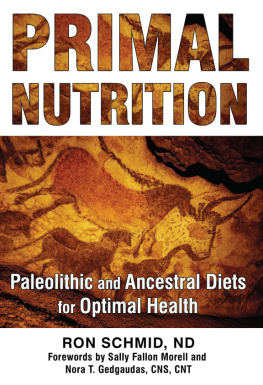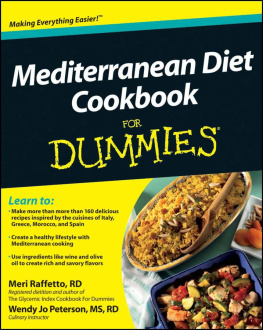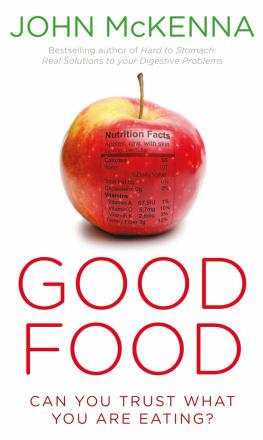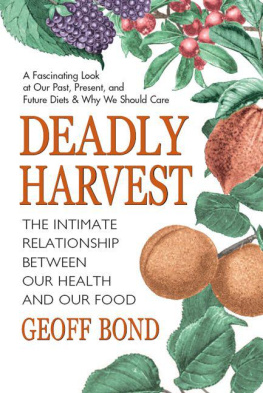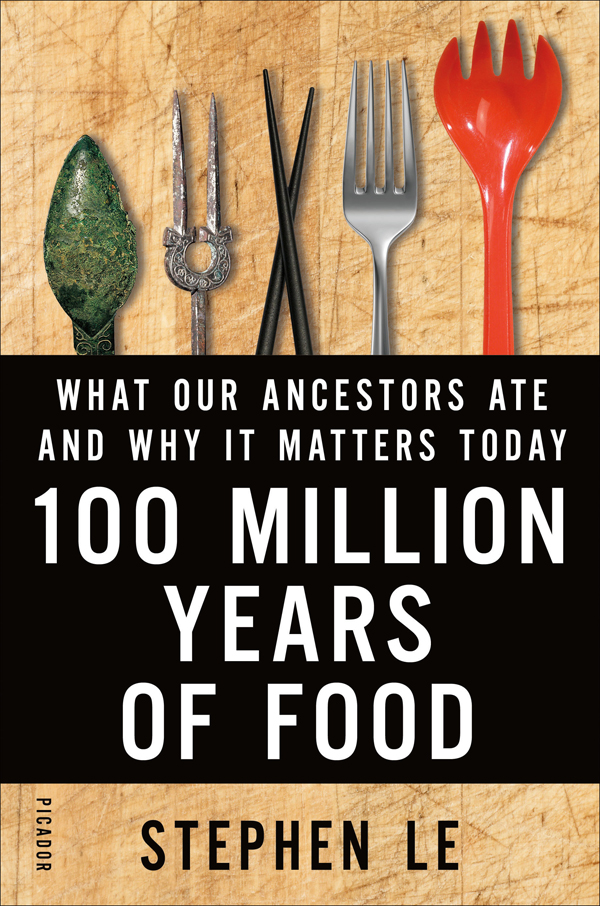Contents
Guide
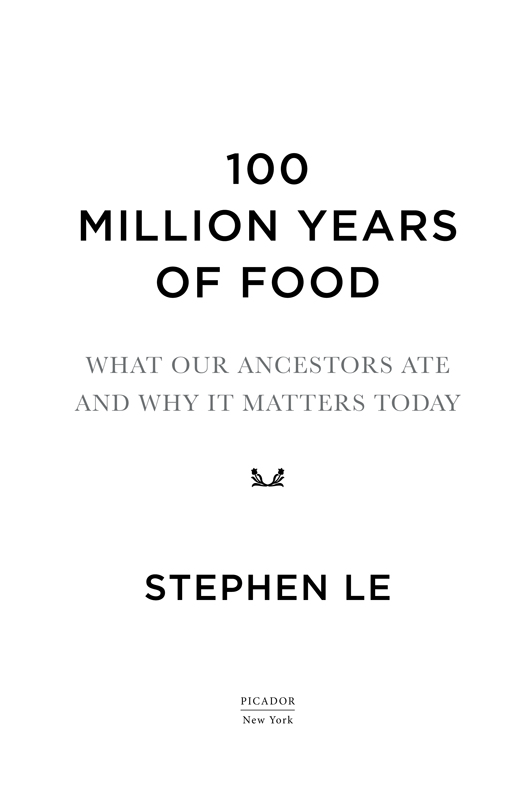
The author and publisher have provided this e-book to you for your personal use only. You may not make this e-book publicly available in any way. Copyright infringement is against the law. If you believe the copy of this e-book you are reading infringes on the authors copyright, please notify the publisher at: us.macmillanusa.com/piracy.
for my father and in memory of my mother
Around the world, people are increasingly beset with vexing conditions like obesity, type 2 diabetes, gout, hypertension, breast cancer, food allergies, acne, and myopia. Dubbed the diseases of Western civilization, these conditions have become more common in recent centuries and decades, with emigrants to more affluent regions of the world often at higher risk for developing afflictions as they adopt the customs and diet of their new home. Its true that better medical care and longer life spans are exposing people to new kinds of diseases. Still, the rapid advance in these conditions signals that something else is going wrongbut what?
The principal argument of 100 Million Years of Food is that a plethora of health woes have surfaced in contemporary times due to our alterations to our ancestors diets, lifestyles, and environments. I will explain how our ancestors used to eat and live and will offer practical suggestions for tweaking ancestral habits and inserting them into our daily lives to avoid or delay the onset of major chronic diseases.
Eating and living like our ancestors seems common sense, and many books have attempted to relate how this can be done. Unfortunately, there is great disagreement about what aspects of ancestral eating and living should be adopted. For example, in some versions of ancestral diets, readers are advised to avoid agricultural staples like bread, rice, beans, and milk in favor of meat and vegetables, while others argue that traditional American farm diets that included bread, beans, and milk are best for health.
My parents immigrated from Vietnam to Canada in the 1960s. They met at a college in Montreal and brought up three boys in the maple-lined suburbs of Ottawa. Due to my obsession with insects and other critters, I was designated the family science nerd. I received a microscope as my Christmas present in fourth grade, which I used to peruse squished mosquitoes on glass slides. The following year, a paperback edition of Charles Darwins On the Origin of Species arrived under the Christmas tree. The letters in the book were extremely small, and the language was unintelligible to an elementary school kid, but I sensed there was something revolutionary between the pages.
When I was eight years old, my grandmother arrived from Vietnam. When I first met her she was wrapped in a shawl, hunched and wizened, a mage. Grandma opened her luggage and handed me a belt wrought from links of varnished wood, along with an exquisite slice of dried banana, the honeylike taste of which lingers with me to this day. During a school holiday when my younger brother and I visited the apartment that Grandma shared with my aunt, I found no high-energy snacks of nuts and dried fruits, no fruit bars, no yogurt, no blaring TV, just a rocking chair, a few shelves of incomprehensible books, a bottle of fish sauce, a rice cooker, some crumpled old linen towels, and the soft light of day streaming through the window. Oblivious to official pronouncements on nutritionshe spoke no EnglishGrandma went on living the way she had always lived, eating the way her ancestors had: a bowl of rice, clumps of dried shredded pork, a sprinkling of fish sauce, and a pile of stir-fried spinach. I was glad to head back home that evening to my video games and high-energy snacks.
The significance of my grandmothers diet didnt hit me until I visited Vietnam for the first time when I was twenty-five. Wherever I traveled in the country, I drew attention because I towered over the local Vietnamese. Despite being under average height and weight among my peers in Canada at 5'8" and 150 pounds, I was still four inches taller and twenty-seven pounds heavier than my peers in northern Vietnam, who were in turn one inch taller and eighteen pounds heavier than their peers a generation earlier. Why the rapid change? When I was invited to meals around Vietnam, hosts often prepared a feast with pork, chicken, or fish in bountiful proportions. However, when I showed up unexpectedly at mealtimes with ordinary folks, I glimpsed the real side of everyday rural cuisine: rice, paddy or jungle vegetables, fermented fish or soybean sauce for flavoring, tofu, and bits of crab and fish. North American diets rich in meat and milk had evidently made me taller, but as I later learned, such fare also put people who consumed it at greater risk of certain chronic diseases.
Back in Canada, my mother developed breast cancer, which metastasized to her lungs. After I finished my doctoral studies in Los Angeles, I spent three months at home, helping to tend to my mothers needs. She passed away at the age of sixty-six, only two years after her own mother passed away at ninety-two. In the aftermath, everyone in our family had a different means of coping. Dad channeled his energies into community activities; my brothers had their wives and children to occupy them. I decided to focus on researching ancestral diets and lifestyles and learning about the risk factors behind breast cancer and other diseases commonly associated with Western civilization.
I studied biological anthropology (the study of human evolution) at the University of California, Los Angeles (UCLA), then spent two years researching food and food-related illnesses around the world, observing and sampling what people ate and chatting with food producers, health experts, and other people connected to eating and nutrition. I began to understand why health experts disagree sharply on which foods are healthy. First, there is a lot of confusion over the difference between short-term and long-term health. A diet that makes a person taller, a weight lifter stronger, and a woman more fertile is healthy to a degree, but generally not a diet that would make a person live longer. This makes perfect sense from an evolutionary point of view, as will be discussed in this book, but the distinction between short-term and long-term health is often overlooked or misinterpreted by many health researchers. This brings us to the second major mental stumbling block encountered by nutritionists and food writers: the tendency to ignore or misunderstand human evolution and to focus instead on simplistic models of human nutrition and physiology. Trying to understand human nutrition and health without understanding evolution is like trying to eavesdrop on a snippet of conversation without knowing the contextit makes little sense or can be very misleading.
As a result of my observations and reinterpretation of scientific studies related to food, I discovered a series of measures that people can take to improve their health. These interventions are discussed throughout the book and summarized in the afterword. However, there are three steps that I consider the most important to improve the health of someone living in modern societies today. They are:
Keep moving. The vast majority of food-related illnesses stem from a profound shift in human lifestyle, from constant, challenging physical and mental activity to sedentary life, punctuated only (if at all) by spurts of frantic exercise. Paradoxically, although a common belief is that our ancestors burned a lot more calories doing physical activity than people today, the evidence does not support this assumption. Moreover, although physical exercise has exploded in popularity in recent decades, obesity rates in North America also rose during that period. Critics of the link between physical exercise and obesity have pointed out that exercise just makes people hungrier, leading them to eat more, and the body compensates by lowering metabolism, obliterating any gains from working out.


